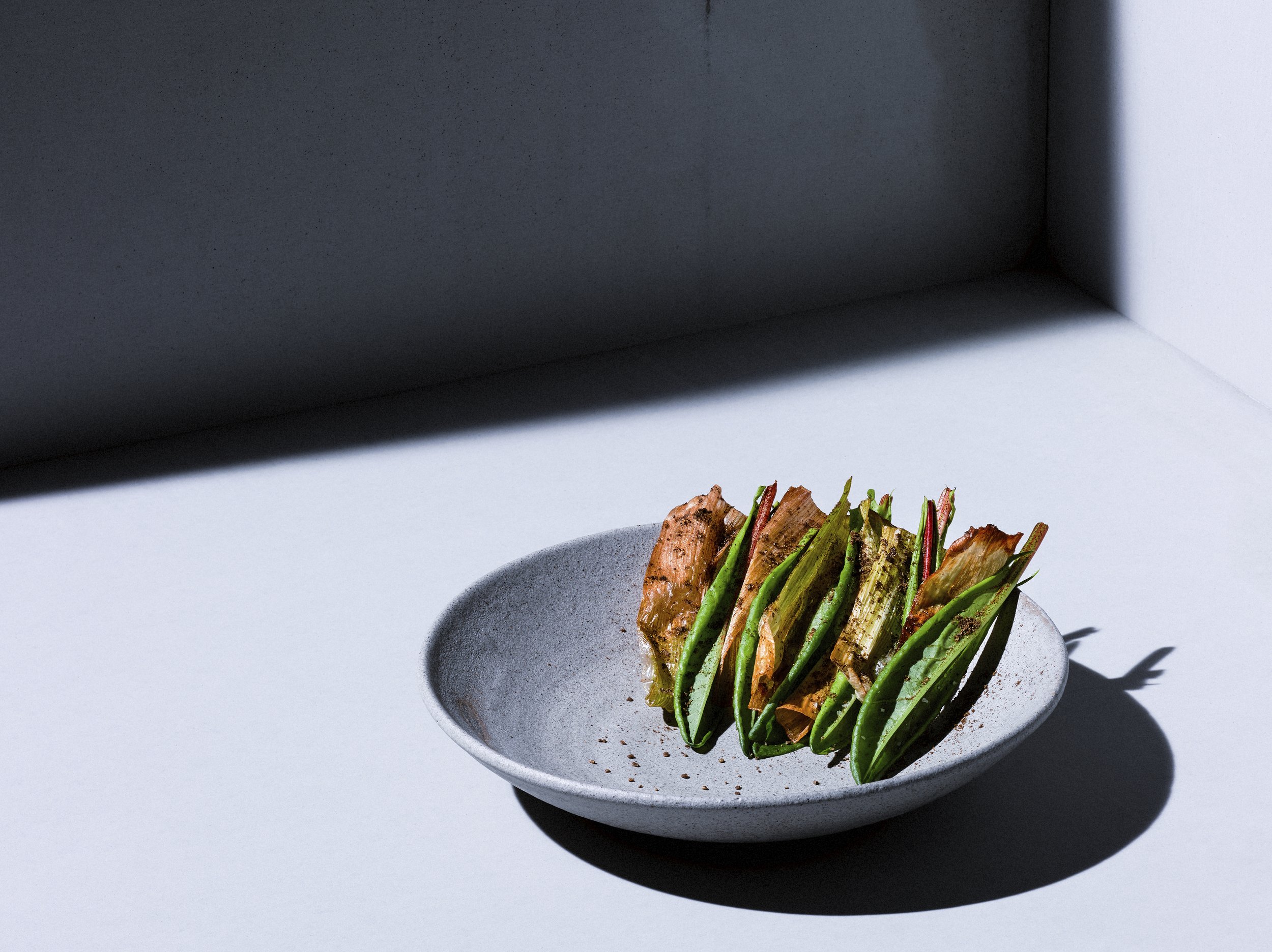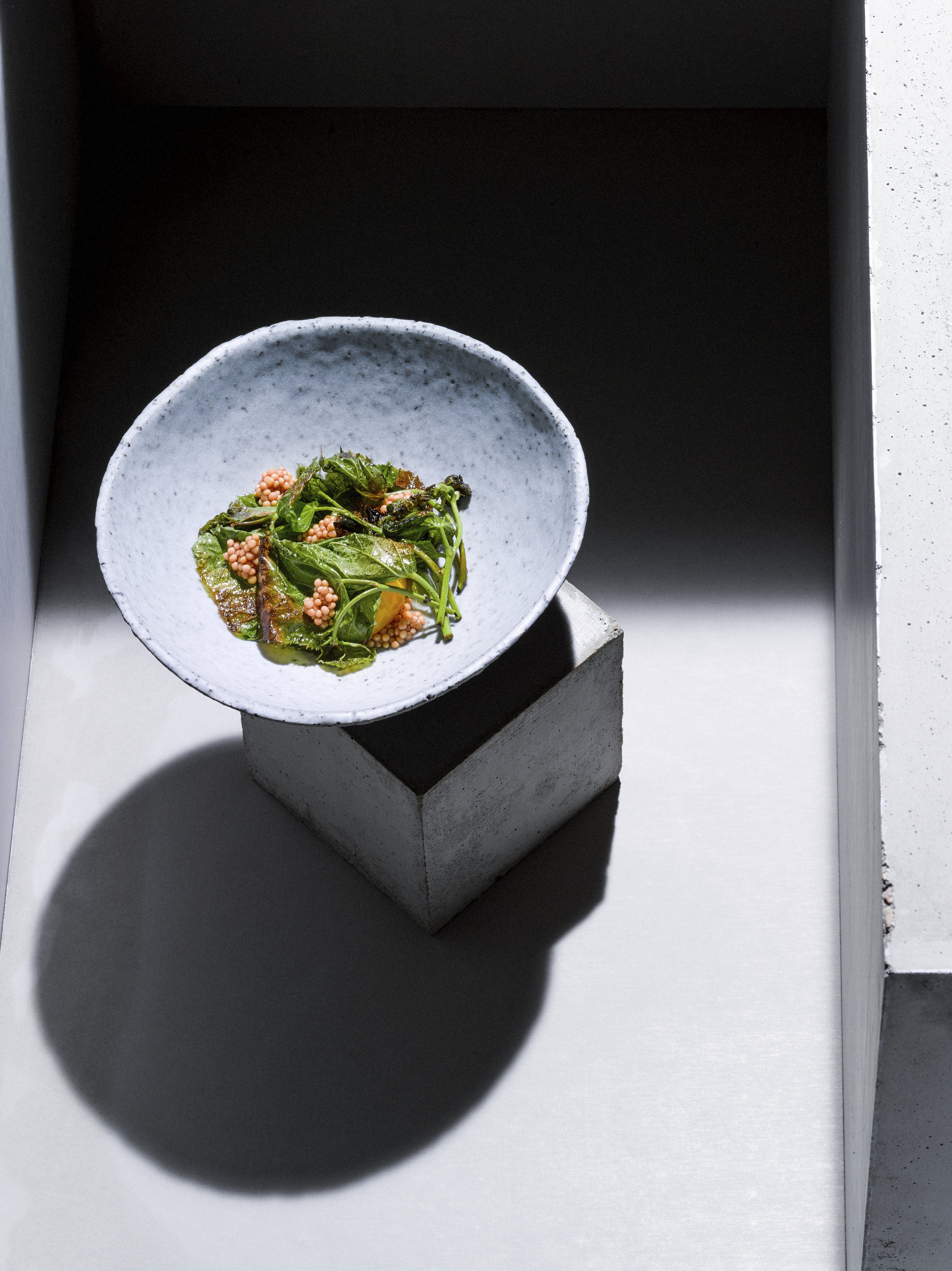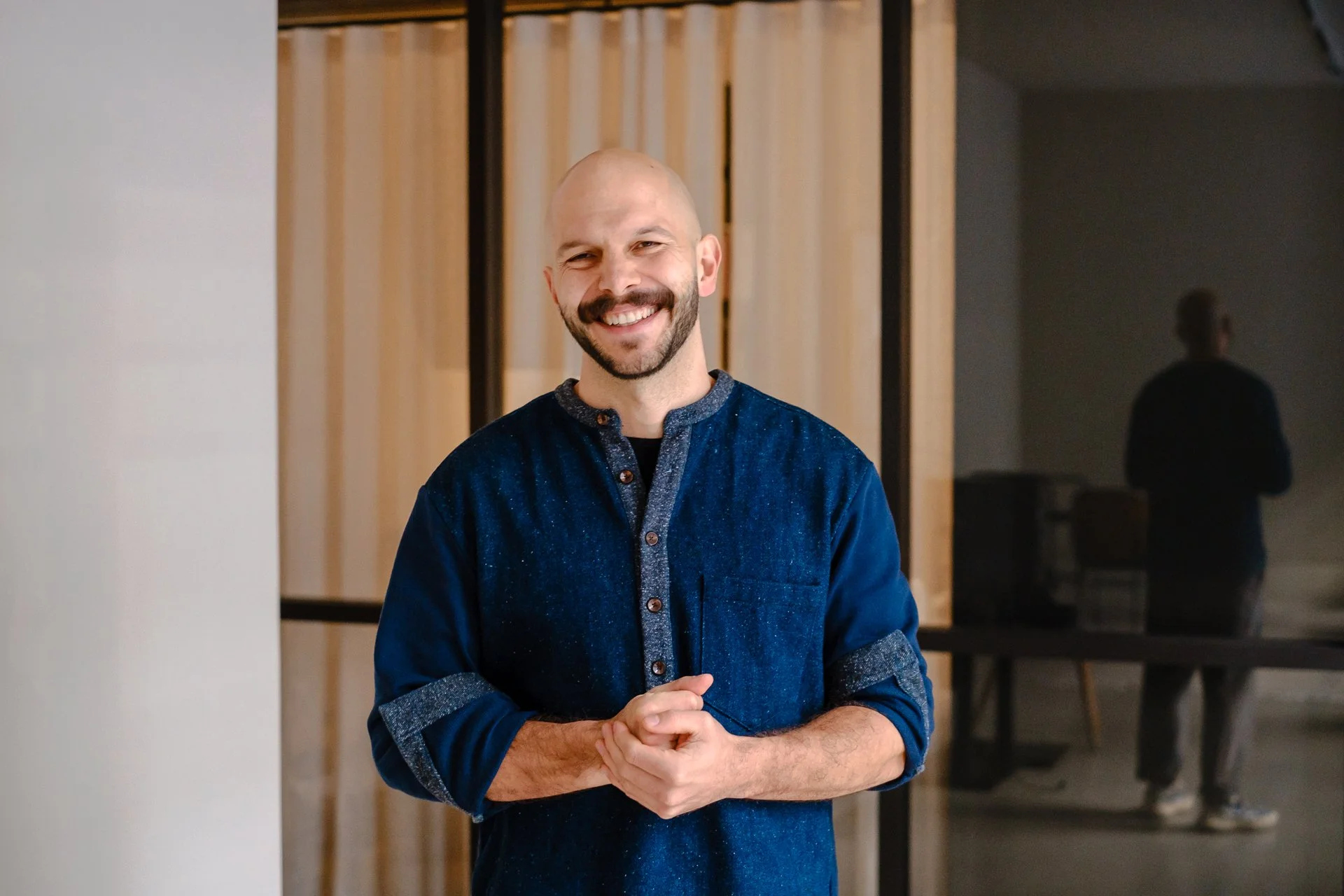Chef / Culinary Creative Director / Consultant / Teacher
Micha Schaefer
About me
You probably know me from Nobelhart & Schmutzig in Berlin, where I served first as head chef, now as creative culinary director. We were awarded our Michelin star within a year of opening in 2015; in 2022 we came in #17 at The World’s 50 Best Restaurants. I also act as a gastronomic consultant, run educational workshops and pop-ups. In 2016, I co-founded Die Gemeinschaft e.V., an association of restaurateurs, artisanal food producers and farmers from the Berlin-Brandenburg region.
At Nobelhart & Schmutzig, we’re 100% “vocally local”. Elsewhere, I like to explore whatever moves me: the craftsmanship of classic French cuisine, the storytelling of Albanian chefs, the finer points of produce quality in Portugal, the flavours of my childhood in Switzerland. The most fascinating recipes and techniques, to me, are always those that have endured for generations. I’m immensely honoured that I get to collaborate with and learn from some of the leaders in our field, such as Selassie Atadika, Kobe Desmerault, Riccardo Camanino, Hans Haas, Bledar Kola, Mehmet Gurs and many more.
There is one question at the heart of everything I do: what does it take to make a dish truly amazing? Locality is one way to approach that: to pare things down to their very essence, to ask yourself what you’re really trying to convey. It’s a conscious limitation that requires you to look deep rather than far – deep into history, agriculture, craftsmanship. That sort of precision – the inquiry into each individual ingredient – is important to me no matter what I’m cooking. But so is emotion. Through each of my dishes, I try to spark memories, stories, fantasies. I don’t just want people to taste, but to feel something. I want them to feel connected to the food they’re eating, the person they’re eating it with, and the person cooking for them. After all, food is communication. And it speaks louder than words.
Consulting
Running a gastronomic business can feel like you’re walking a tightrope.
You need a killer concept that creates stand out in today’s market. You need to follow through on your promises and deliver quality, day after day, night after night. But you also need the kind of operational efficiency that gets you the numbers. And while that requires clear processes and structures, you also need enough flexibility to respond to quickly changing conditions.
And then, you’ve also got to navigate the needs and priorities of the people involved: head chefs, restaurant owners, and of course, the entire team. You’ve got to make sure you don’t burn out your staff – or yourself. The old way of doing things just is no longer viable in our complex world.
It’s a hard balance to strike, but I’m here to help you.
With a clear analytical view and over 15 years experience in the industry, I act as a sparring partner and consultant to restaurants that want to translate clear strategy into seamless operations.
In the case of upscale, small restaurants, that might mean creating better processes and structures – however without losing the magic. In the case of larger venues, it might be more about making room for creativity and flexibility to create a more compelling offer. Either way, it’s about creating systems and strategies that make it possible for you to be consistently successful.
I approach my consulting the same way I approach my cooking: I look at what really matters. What is essential? What’s a “need to have”? And what’s a “nice to have”? What are you trying to convey to your guests – and how can you make sure that it really lands? Of course, I am also happy to help you develop your recipes and unique style.
If that sounds like something you need, don’t hesitate to get in touch.





Workshops & Collaborative Solutions
-
In many kitchens, strict hierarchies are still the norm. Yet, the traditional brigade system might not actually be serving you. It creates clear chains of command, yes. But it also makes you much less flexible, places enormous pressure on the head chef, and leaves much of the team’s creativity and resourcefulness untapped.
So what if your kitchen could run differently – and better? For you, as an owner and/or head chef, and for your team? And what if this could give you a competitive advantage in the search for new talent?This one-day workshop helps you create a blueprint for a human-centric kitchen, where trust, flexibility, and individual ownership replace traditional hierarchies.
Working alongside your team, you’ll analyse how business needs and team needs might be aligned with individual strengths – and used as the basis for greater collaboration and innovation. We will take a good look at your resources, consider possible challenges, tackle concrete communication and workflow scenarios, and co-create solutions that work for everyone.
What you can expect:Practical tools to break down rigid hierarchies and build more flexible structures
Activities that help identify and harness each team member’s unique strengths
Solutions for improving team communication, workflow, and trust
A clear action plan for creating a kitchen that empowers everyone to contribute at their fullest potential
-
In today’s competitive restaurant landscape, you need a killer concept.
There is just no way around it.
But how do you create something that at once…… feels genuinely authentic, unique, and true to your values and story
… meets both market needs and guest expectations
… can reliably be delivered during every service?
That’s where this workshop comes in – whether you are in the early stages of generating ideas for your culinary/brand identity or looking to reinvigorate an already existing project.Through collaborative exercises, in-depth analysis and expert guidance, we’ll shape your concept into something that has the power to reflect your vision and reach your guests. Beyond defining your unique culinary voice, we’ll also dive into concrete steps like recipe development, menu design, and branding.
What you can expect:
Creative ideation sessions paired with in-depth analysis
An assessment of how your kitchen’s existing strengths and stand outs
Insights on how your concept might be translated into efficient workflows
A clear roadmap for turning inspiration into action
-
As head chefs, we know that kitchens often rely too heavily on the few of us who hold the reins. Yet, the best kitchens are those where everyone feels empowered to step up – allowing you, the head chef, to focus on the bigger picture. On the work that really only you can do.
In this workshop, we’ll explore how you can shift from a culture of dependency on the head chef to one where your team members feel confident, capable, and empowered to take ownership of their responsibility.
Over the course of the session, we’ll dive deep into your kitchen’s unique situation and dynamics, identify what might help or hinder change, and develop strategies that allow your team to grow. The goal is to create a balanced environment where leadership and responsibility are shared, and everyone feels confident in their ability to contribute, improving both morale and service
What you can expect:
Techniques to improve team trust, autonomy, and accountability
Exercises that help develop leadership skills across your team
Solutions that allow everyone to take more ownership of their work
A collaborative action plan for developing team independence
-
Sustainability isn’t just about what ends up on the plate or in the trash – it’s about creating a kitchen that cares for both the environment and your team. But it’s also a complex challenge. And for that reason, it can be hard to get started, or to know how you can improve sustainability efforts in a way that is right and realistic for your business.
In 2024, Nobelhart & Schmutzig received the Sustainable Restaurant Award at The World’s 50 Best Restaurants on the basis of a sustainability audit conducted by Food Made Good. From that experience, I learned that it’s not about doing everything right, but about taking small, meaningful steps you can implement right now – and then building on them over time.
That’s exactly what this workshop is about. What are the five concrete, attainable steps that might create the greatest impact for your business, while also not overwhelming or overburdening you or your team?
We’ll start by assessing your unique situation and challenges, focussing on both eco-friendly practices and the health and well-being of your team. Then, we’ll co-create solutions and strategies together, ensuring the team is involved and invested. By the end, you’ll have an actionable plan – and your team a clear sense of mission and purpose.By the way: This workshop is also an excellent preparation if you’re pursuing the Food Made Good certification.
What you can expect:
A strength-based, resource-oriented look at your challenges and capabilities
Non-obvious ideas for reducing waste, improving local sourcing, and more
Tools to help your team become sustainability champions
Exercises around culture and communication
-
• Butchery and Cooking Methods: Learn to expertly break down animals and fish and explore a variety of preparation techniques.
• Sauces: Master the creation of flavorful sauces, that go out of the ordinary.
• Cooking with Vegetables: Discover new ways to turn vegetables into standout dishes using sustainable and bold craftsmanship.
• Cooking with Fire: Learn to harness the power of open-flame cooking for distinctive flavors.
• Preservation Techniques: Gain hands-on experience with methods like fermenting, canning, and proper storage to extend ingredient shelf life and enhance flavors.
• Trainee Training: Tailored sessions to strengthen the skills and confidence of apprentices as they grow into key roles within your team.
Where to taste my food in 2025
Tuesdays to Saturdays
Vocally Local since 2015
1* Michelin, No. 47 at Worlds 50 Best Restaurants
Dinner at Nobelhart & Schmutzig, Berlin
February 17th
Cooking a vocally local cuisine in with produce from the austrian mountains
Four Hands Dinner at Rote Wand, Lech am Arlberg
April 17th
Serving a vocally local cuisine in with produce from Bavaria
Dinner at Mural Farmhouse, Munich
May 25th
Cooking over fire and eating in and from the Market Garden
Dinner at Wilmarsgaerten, Märkisch Wilmersdorf
Barcatering
Drink menu with local ingredients co-designed by myself and Kristiane Kegelmann from Pars
from Barthur, Berlin
Tuesdays to Saturdays
A pasta concept by the Mural Group, with a menu thoughtfully designed by me
Dinner at Bambule Bar, Munich


